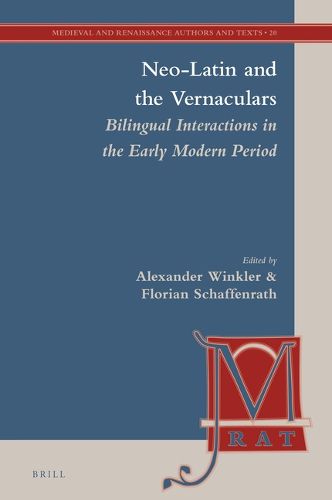Readings Newsletter
Become a Readings Member to make your shopping experience even easier.
Sign in or sign up for free!
You’re not far away from qualifying for FREE standard shipping within Australia
You’ve qualified for FREE standard shipping within Australia
The cart is loading…






The early modern world was profoundly bilingual: alongside the emerging vernaculars, Latin continued to be pervasively used well into the 18th century. Authors were often active in and conversant with both vernacular and Latin discourses. The language they chose for their writings depended on various factors, be they social, cultural, or merely aesthetic, and had an impact on how and by whom these texts were received. Due to the increasing interest in Neo-Latin studies, early modern bilingualism has recently been attracting attention. This volumes provides a series of case studies focusing on key aspects of early modern bilingualism, such as language choice, translations/rewritings, and the interferences between vernacular and Neo-Latin discourses.
Contributors are Giacomo Comiati, Ronny Kaiser, Teodoro Katinis, Francesco Lucioli, Giuseppe Marcellino, Marianne Pade, Maxim Rigaux, Florian Schaffenrath, Claudia Schindler, Federica Signoriello, Thomas Velle, Alexander Winkler.
$9.00 standard shipping within Australia
FREE standard shipping within Australia for orders over $100.00
Express & International shipping calculated at checkout
The early modern world was profoundly bilingual: alongside the emerging vernaculars, Latin continued to be pervasively used well into the 18th century. Authors were often active in and conversant with both vernacular and Latin discourses. The language they chose for their writings depended on various factors, be they social, cultural, or merely aesthetic, and had an impact on how and by whom these texts were received. Due to the increasing interest in Neo-Latin studies, early modern bilingualism has recently been attracting attention. This volumes provides a series of case studies focusing on key aspects of early modern bilingualism, such as language choice, translations/rewritings, and the interferences between vernacular and Neo-Latin discourses.
Contributors are Giacomo Comiati, Ronny Kaiser, Teodoro Katinis, Francesco Lucioli, Giuseppe Marcellino, Marianne Pade, Maxim Rigaux, Florian Schaffenrath, Claudia Schindler, Federica Signoriello, Thomas Velle, Alexander Winkler.